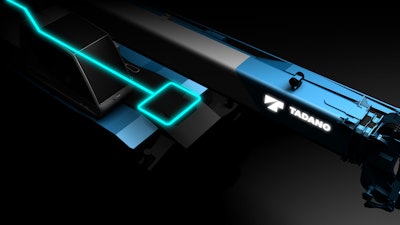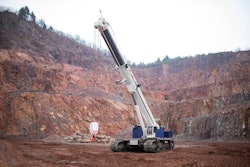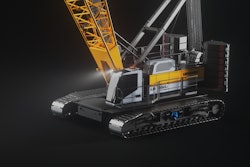
Tadano will release the world’s first electric rough terrain crane in late 2023.
While no preliminary specs were shared, Tadano says the crane will be able to drive to the jobsite and complete all lifting operations using battery/electric, rather than diesel power to deliver zero-emissions operation.
In addition to the environmental benefits, the electric motor used in the crane will emit significantly lower noise levels than its diesel counterparts which is advantageous for customers working in areas with noise ordinances, completing projects at night and operating indoors.
This isn’t the first electric machine to enter the crane segment. German manufacturer Liebherr debuted its LR 1200.1 unplugged and LR 1250.1 unplugged battery-powered crawler cranes in 2021.
Tadano says its foray into electric equipment is a critical next step toward achieving its long-term environmental targets, which include a 25% reduction in CO2 emissions from business activities, a 35% reduction in CO2 emissions from product use by 2030 and net zero carbon emissions by 2050.
“In the spirit of greater harmony, Tadano contributes to a better global environment as a part of the surrounding society. We have set aggressive goals for lowering both operational and product emissions, and we will partner with industry leading companies to attain those goals,” says Toshiaki Ujiie, president, CEO and representative director of Tadano Ltd. “In conjunction with previous product innovations to lower CO2 emissions, we are excited to introduce the first battery/electric rough terrain crane, which will be a key driver for our goal of 35% reduction in product CO2 emissions by 2030.”
All of the company’s sustainable solutions, including the electric crane, will be branded under the name Tadano Green Solutions (TGS). Other TGS initiatives include the Tadano E-Pack, an electro-hydraulic system that allows for crane operation without starting the engine. The E-Pack is currently available in Europe, and soon it will be available in Japan.
In addition, most cranes manufactured by Tadano in Europe will be able to be operated with reduced-emissions fuels like hydro-treated vegetable oil without modification.











